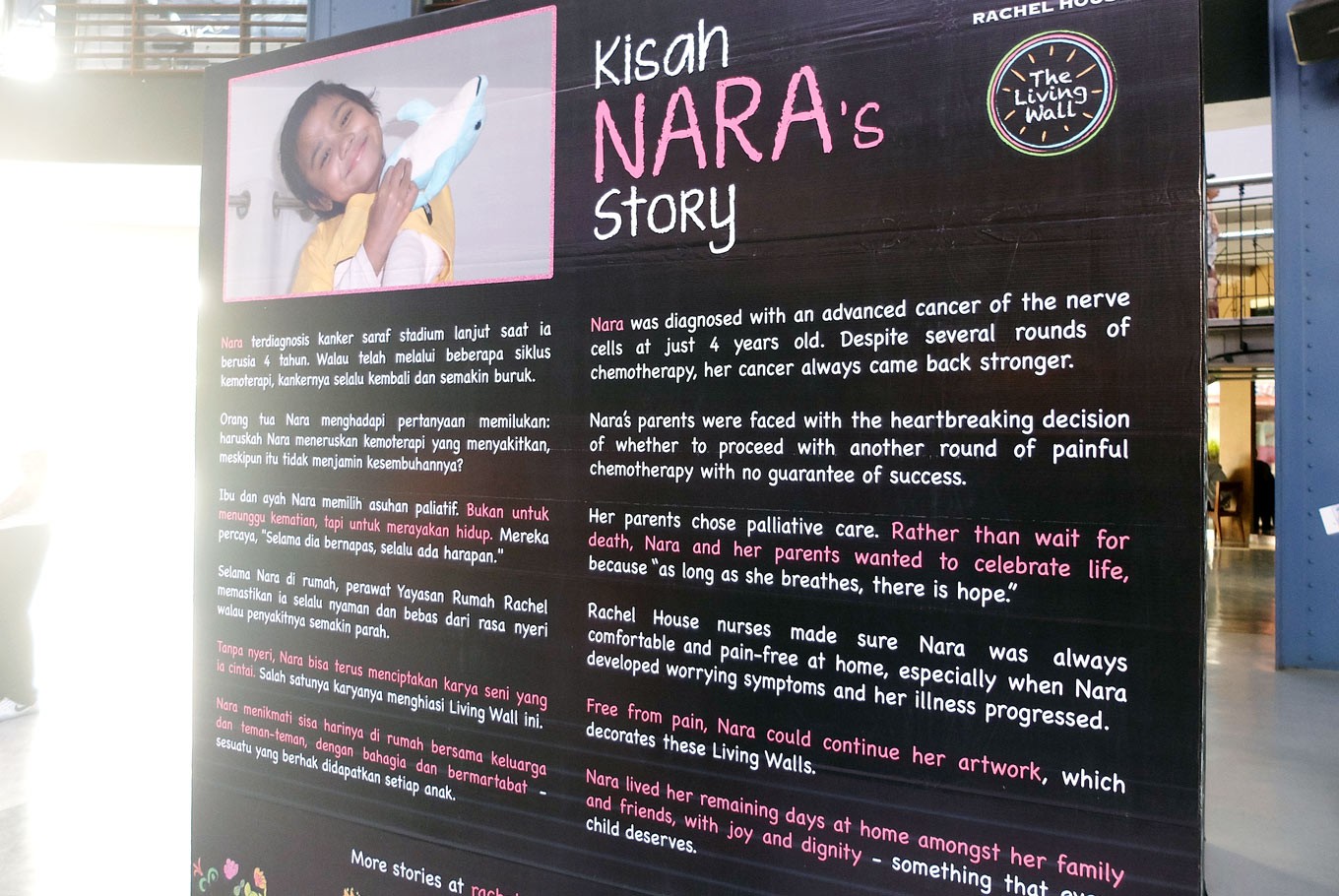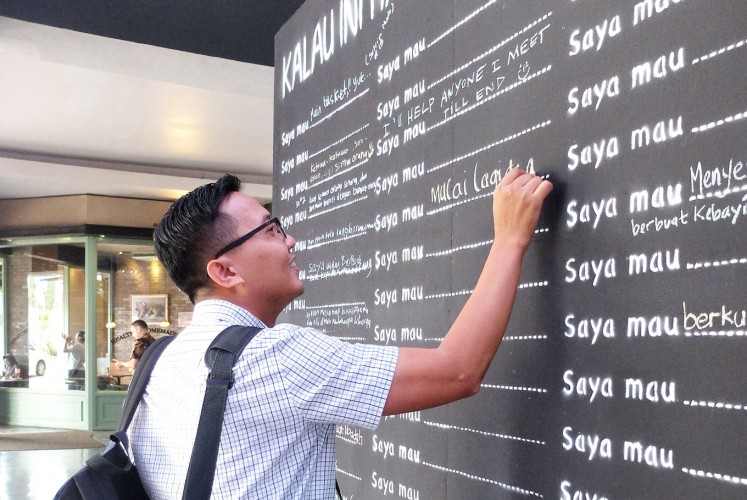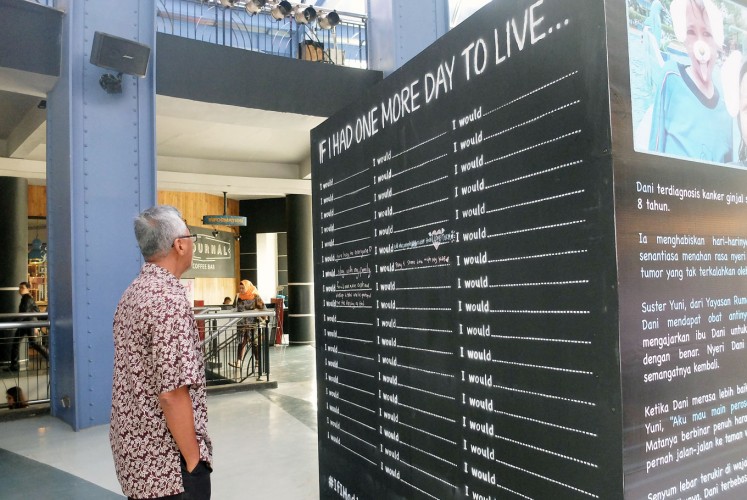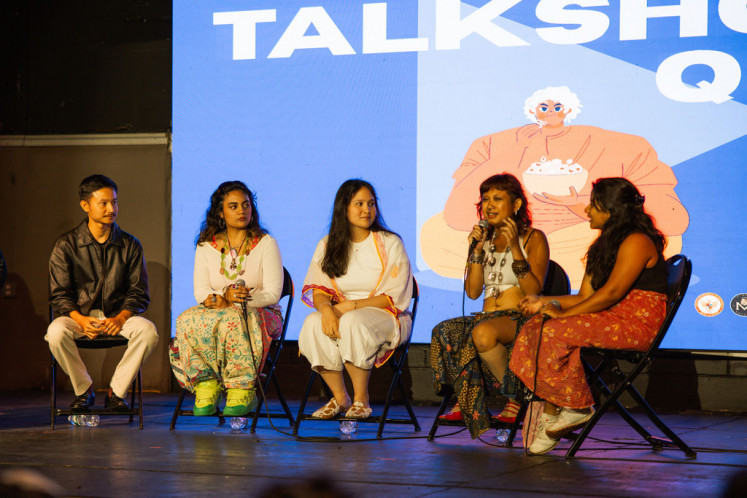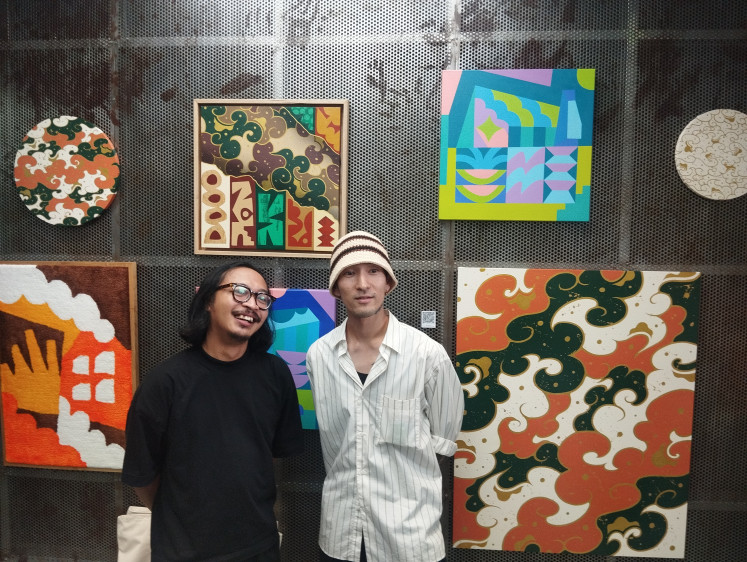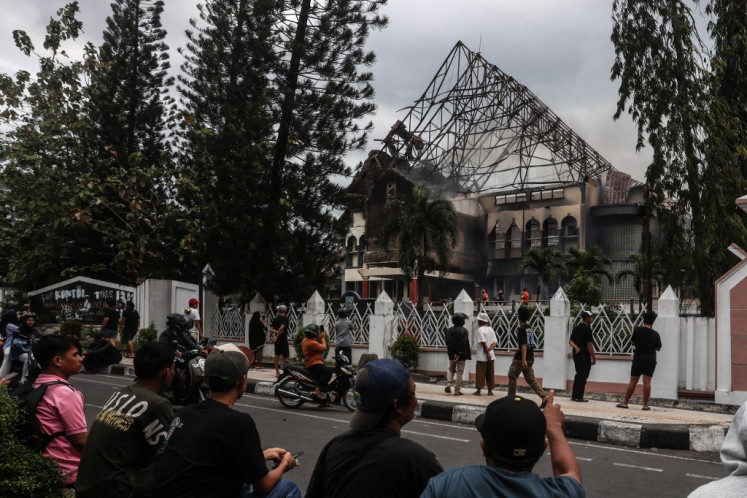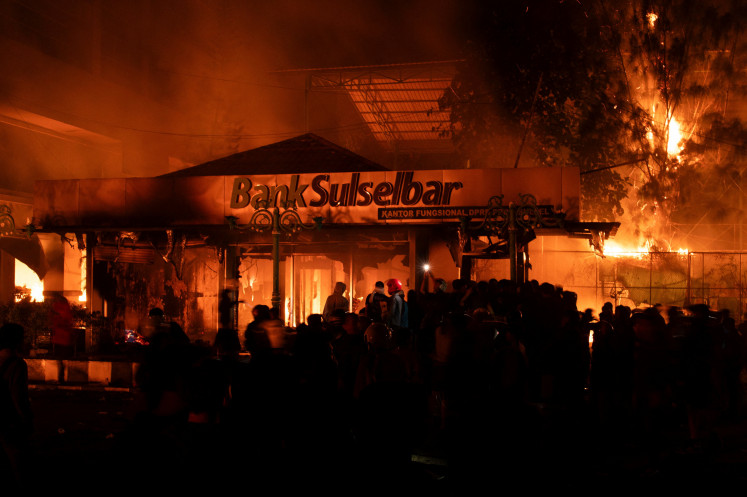Popular Reads
Top Results
Can't find what you're looking for?
View all search resultsPopular Reads
Top Results
Can't find what you're looking for?
View all search resultsRachel House spreading joy among terminally ill children
While medical personnel are not always able to provide palliative home services, Rachel House has developed a community of palliative caretakers in North Jakarta.
Change text size
Gift Premium Articles
to Anyone
W
hat do children feel when they are aware of the fatal diseases plaguing them? How do their families deal with these children, who should be happy and playing with their friends, but now have to undergo various treatments and endure pain?
Such circumstances prompted former banker Lynna Chandra to set up the Rachel House foundation in 2006.
The foundation aims to provide palliative care for children with cancer and HIV/AIDS to enhance their quality of life and give them happiness throughout their struggles.
“We hope the children can always be as cheerful as their healthy peers, even though they have to receive [medical] treatments that can be painful,” said Rachel House CEO Kartika Kurniasari.
Kartika suggested that such care is better provided at home in a more comforting atmosphere, thus enabling the patients to spend their last days among family members.
She said North Jakarta was chosen as the community base of the palliative caretakers because it was home to a greater number of low-income residents who did not have sufficient access to healthcare.
“Training also covers nursing basics, first aid methods and how to contact hospitals when a patient’s condition deteriorates,” said Susi, a nurse at the foundation.
Public bucket list: A man writes on Rachel House’s Living Wall during a recent campaign at the Cilandak Town Square mall in South Jakarta. On the wall, visitors can write down the things they would want to do if they knew they were living their final days. (JP/Juliana Harsianti)Rachel House also assists patients’ families in caring for their children and in dealing with the emotional turbulence that comes with this responsibility.
According to Susi, several parents who had terminally ill children eagerly supported Rachel House as trainers or assistants to boost the spirits of other families whose children are dying.
Rachel House makes an effort to cooperate with hospitals by arranging palliative services for home care, conducting medical therapy to relieve pain and opening wards dedicated to children.
The foundation has also urged the government to include a palliative component in the National Health Insurance (JKN) program.
Unless it becomes part of the JKN, palliative care can be a burden for low-income people.
Reflection: A visitor reads bucket list items written on Rachel House’s Living Wall. (JP/Juliana Harsianti)Psychiatrist Edi Setiawan Tehuteru, a medical consultant for the foundation, said he hoped Rachel House’s efforts in North Jakarta can be duplicated in other locations by the house itself or by other institutions, emphasizing the importance to palliative service.
“For patients with no more chances of survival, enhancing the quality of the final part of life is [important] — even more so for children, whose lives should be filled with joy,” Edi said.
“Some medicine can be administered to reduce pain, in addition to other treatments with proven soothing and mood-boosting effects,” he added.
One of the additional treatments from the foundation is musical therapy, which is assisted by harpist Maya Hasan.
According to Maya, a certified musical therapist, music travels at a frequency that produces a positive effect on its recipient.
“So far, classical music is recommended, but according to the latest research, any genre is good for therapy as long as it gives pleasure to its listener,” Maya said.

